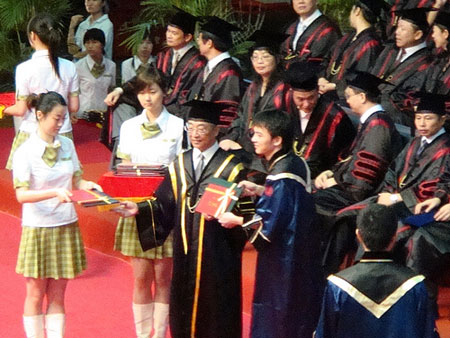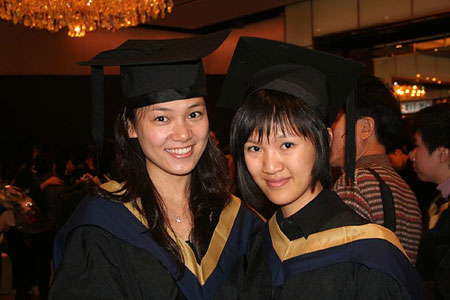Special Topic: Finding and Keeping Jobs in China
In many of my recent columns on the Chinese job-market, I have been continually emphasizing – rambling on some might argue – the precarious situation facing the six-million young people who will graduate from universities in China in 2009. However, it struck me recently that even though I have been exploring this issue in-depth, I may have been taking a rather one-dimensional approach. I have looked at the six-million as one homogeneous group when, in fact, it needs to be split and examined as different entities. Possibly, the clearest divide amongst graduates is in terms of gender. Even in 21st century China, women have, at times, suffered the type of discrimination more akin to earlier generations. Now, with the world gripped by financial crisis, the problem may be set to get worst.
According to Xia Yinlan, an expert on marriage and family law, several employers are reluctant to hire young women because of the potential disruption caused by pregnancy and maternity leave. The argument goes that this is now exacerbated by the financial crisis as recruitment is an expensive process, especially if it needs to be done again after a couple of years when a female employee goes on maternity leave -- companies simply cannot afford this in the modern climate. A survey by the Ministry of Human Resources and Social Security concluded that, in 2007, 67% of employers make explicitly unfavorable requirements in job descriptions and recruitment policies, such as prohibiting pregnancy during the term of a contract. It also found that 80% of female graduates encountered discrimination in their search for a job. The worrying thing is that these numbers could easily get bigger.

Photo: 辉·Free
There were high hopes at the start of 2008 that this situation would change dramatically with the passing of new labor laws at the start of the year. Unfortunately, many companies look to circumvent these regulations by indirectly forcing female employees out of the workplace, or, by simply not hiring them in the first place. In an interview with China Daily, Li Xiandong of the China University of Political Science and Law emphasized that the problems with discrimination against women are caused more by the attitudes of companies than any legal provisions. Li said,”The provision of preferring male students to female students on job applications is definitely a gender-based prejudice which violates Chinese law.'' He also highlighted that, “Clause 3 of the Labor Law of the People's Republic of China also states that women, as part of the labor force, share equal access to employment and occupational selection.” It is also stipulated in the Law on the Protection of Women’s Rights that employers cannot fire employees because of such factors as marriage, pregnancy, maternity leave or breastfeeding.
Even those female graduates that are lucky enough to snare their dream job could also face the prospect of unequal treatment in comparison to their male colleagues. According to reports in China Daily, during their first year of employment, female graduates can expect to earn 10.4% less than male employees in equivalent positions. The average annual salary for a woman was 30,164 RMB per year, whilst a man could expect to take home 33,670 RMB.

Photo: fei2ma
Finally, a recent report in China Daily suggests that some women are even beginning to consider giving up on finding a job altogether. Or, at the very least, are beginning to focus more on family-life rather than their careers. It gave details of a survey taken by Chinese dating site jiayuan.com, which found that the number of female university graduates signing-up in the hope of finding Mr. Right rather than a long-term career had risen by 20%.
Special Topic: Finding and Keeping Jobs in China
***
Related Links
Gloomy Outlook for Class of 2009
Corporate Compensation Chasms
Little Emperors in the Workplace
Warning:The use of any news and articles published on eChinacities.com without written permission from eChinacities.com constitutes copyright infringement, and legal action can be taken.
All comments are subject to moderation by eChinacities.com staff. Because we wish to encourage healthy and productive dialogue we ask that all comments remain polite, free of profanity or name calling, and relevant to the original post and subsequent discussion. Comments will not be deleted because of the viewpoints they express, only if the mode of expression itself is inappropriate.
Please login to add a comment. Click here to login immediately.